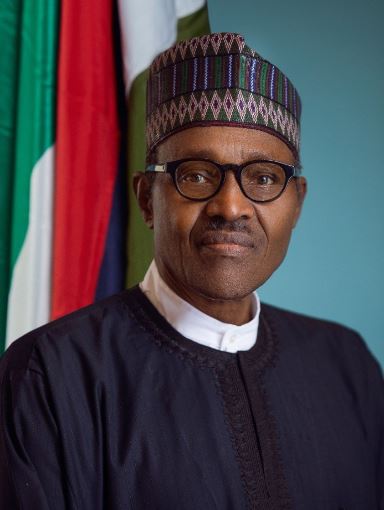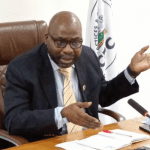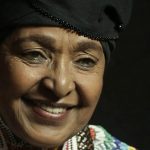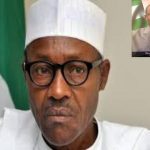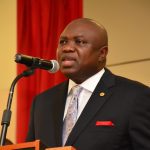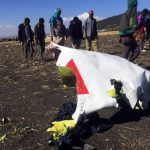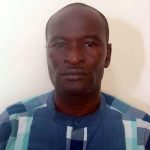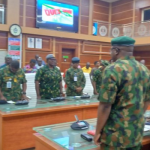President Muhammadu Buhari has said Nigeria lost an estimated $157.5 billion to illicit financial flows between 2003 and 2012.
He quoted the figure from the 2014 Global Financial Integrity Report in his address to the High-Level National Side-Event organised by the African Union Development Agency and New Partnership for Africa’s Development (AUDA-NEPAD) and the Economic and Financial Crimes Commission (EFCC) on Wednesday in New York, the United States of America (U.S.A).
The event was on the sidelines of the 74th United Nations General Assembly (UNGA), with the theme: Promotion of International Cooperation to Combat Illicit Financial Flows and Strengthen Good Practices on Assets Recovery and Return to Foster Sustainable Development.
The Nigerian leader noted that such massive loss of assets resulted in dearth of resources “to fund public services or to alleviate poverty” in the country.
In a statement by his Special Adviser (SA) on Media and Publicity, Femi Adesina, the President added: “This is why, as Africans, we have no choice but to break the back of corruption.”
Acknowledging lack of sufficient capital and corruption as impediments to socio-economic development of the continent, the President emphatically restated his administration’s anti-corruption campaign.
“That is why our government has made it a war we intend to win. We will give all it takes to ensure there is no hiding place for purveyors of corrupt practices who are truly enemies of the people,” he said.
Harping on the need to strengthen good practices on asset recovery and return, President Buhari said: “In the last five years, our government has made significant progress to curb corruption. We have recovered millions of dollars stolen from our country.”
The President stressed that his administration faced some hurdles in the fight against graft and recovery of stolen public funds.
“There are still a lot of other funds that are stuck in foreign bank accounts due to international laws, different jurisdictions and justice systems that make it difficult for repatriation,” he said.
Describing Illicit Financial Flows as “illegal movement of funds from one country to another,” President Buhari regretted that “these flows deplete Africa’s internally generated revenues (IGR), foreign exchange earnings, reduce tax revenues, drain natural resources, facilitate corruption and stunt private sector development”.
He cited tax avoidance as another form of illicit financial flow, quoting the Tax Justice Network and the International Monetary Fund (IMF) that estimated over U.S$200 billion per year was “being lost by developing countries when multinational enterprises do not pay taxes in the countries where they made the profit”.
“This amount is significantly higher than the annual development aid received by these countries which are estimated to be about U.S$143 billion,” President Buhari added.
Commending the organisers of the meeting designed to finding “pragmatic ways to promote international cooperation to combat illicit financial flows and strengthen good practices on asset recovery and return, as an arm of sustainable development policies in Africa,” the Nigerian President also lauded their “shared commitment to root out corruption from our continent”.

